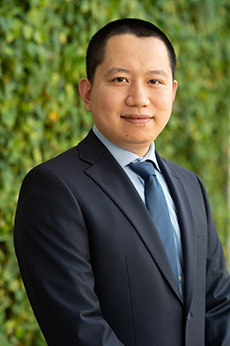Professor Luyao Lu’s lab explores the next-generation soft, lightweight, biocompatible materials and devices such as transparent microelectrodes, photodetectors, solar cells, and light-emitting diodes. Our short-term goal is to provide advanced electrical and optical microsystems that can seamlessly integrate with and investigate the dynamics of soft biological systems at the micro/nano scales. Our long-term goal is to develop bio-integrated electronics that can facilitate health monitoring, personalized medicine design, organs-on-chips development, and accurate disease diagnosis. Our research is supported by external funding sources such as NSF and NIH as well as multiple GW internal funds. To accomplish our multidisciplinary research goals, we collaborate with research groups from both inside GW and other institutions. Below are highlights of some current research topics in the Lu lab:
-
Develop high-performance miniaturized wireless implants that can provide advanced capabilities in high spatio-temporal resolution controlling and monitoring of cell/ tissue function in freely behaving test subjects. For example, we developed battery-free, fully implantable, flexible wireless photometers to continuously record brain activity in small rodent models over time in complex 3D environments in a way not possible with existing technologies.
-
Design optically transparent microelectrodes with excellent biocompatibility, biochemical stability, and/or bioresorbablility to allow acute or chronic simultaneous coupling of time-resolved electrophysiology data with optically measured, spatially-resolved cell activity. In addition, we investigate scalable fabrication techniques to integrate those materials into soft large-area wafer-scale microelectrode arrays for conformal interfacing with curved tissue/organ systems.
-
Develop multifunctional optoelectronics systems to combine electrophysiology with complementary genetically targeted optical methods for investigating cellular processes under programmed modulation with cell specificity. Those tools are crucial to studying the causal connectivity and function of various biological systems such as the brain and the heart.
-
Design effective wireless, flexible, and self-powering devices to support continuous uninterrupted operations of various wearable and implantable biomedical systems. Those devices will integrate energy harvesting components such as solar cells with energy storage components including batteries and supercapacitors into soft and biocompatible formats.


